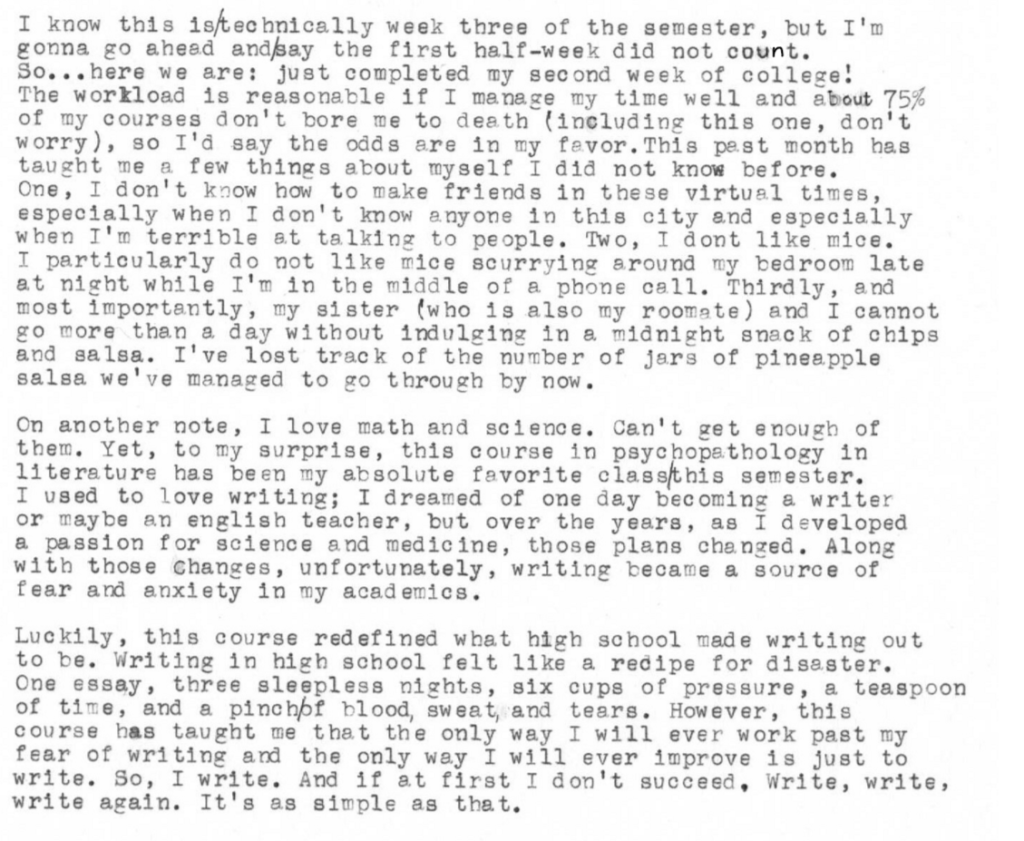
Each weekend I say, “This is the most homework I’ve had to do so far,” yet the next weekend is just there to top the last. So…”This is the most homework I’ve had to do so far,” falls from my lips this week and will likely make a roaring comeback next Friday. But, no need to worry. As of now, I seem to have it all under control. I’m a planning addict and have laid out a detailed to-do list for each day of this weekend. Of the 11 assignments I have to do, 7 are for my biology course, so I can’t wait to see what the next four years of complex science courses has in store for me. Oh, and can’t forget another four possible years after that of medical school. Ah, the things we do for love…
I think this week in Psychopathology has been my favorite so far. I enjoyed writing my own personal narrative, and I found it interesting to read through some of my peers’ work as well. Even though many of the pieces we’ve discussed touch on feminism, I’ll admit I was frankly surprised just how many of my peers’ narratives dealt with female oppression in their own lives. While I know women still have a ways to go, I’m proud of how far we’ve come to reach further equality. However, it was infuriating to find so many of my classmates, barely adults, dealing with oppression and abuse from men. It is the unfortunate reality that the world we live in is not always designed to promote women, but I think it’s the little things like this class— where women have a space to speak up about their struggles— where real change can begin.



